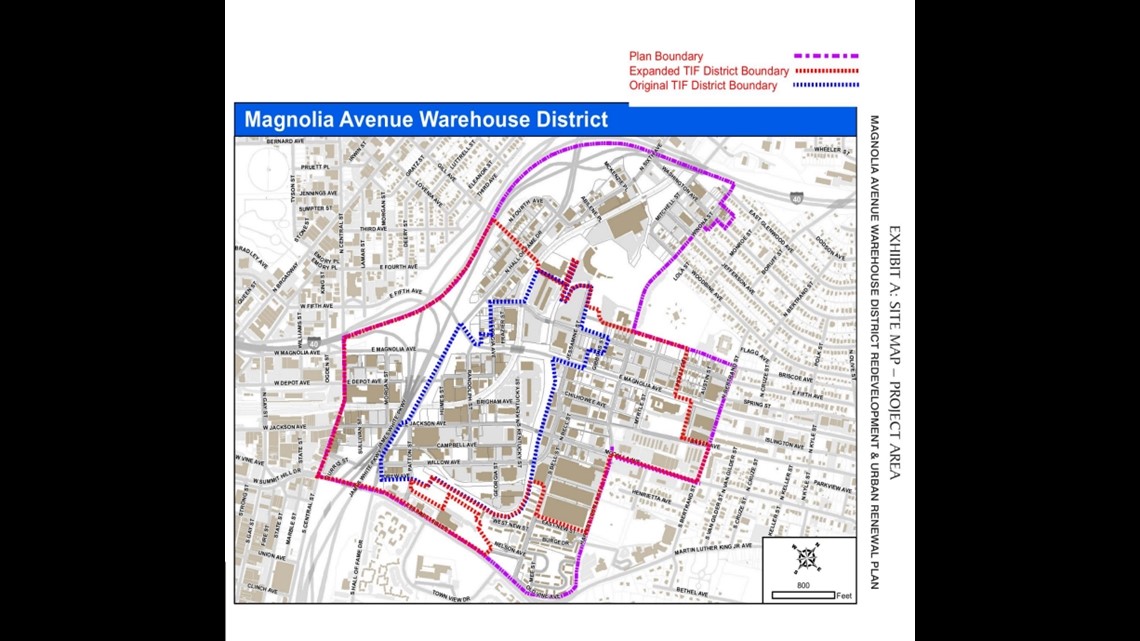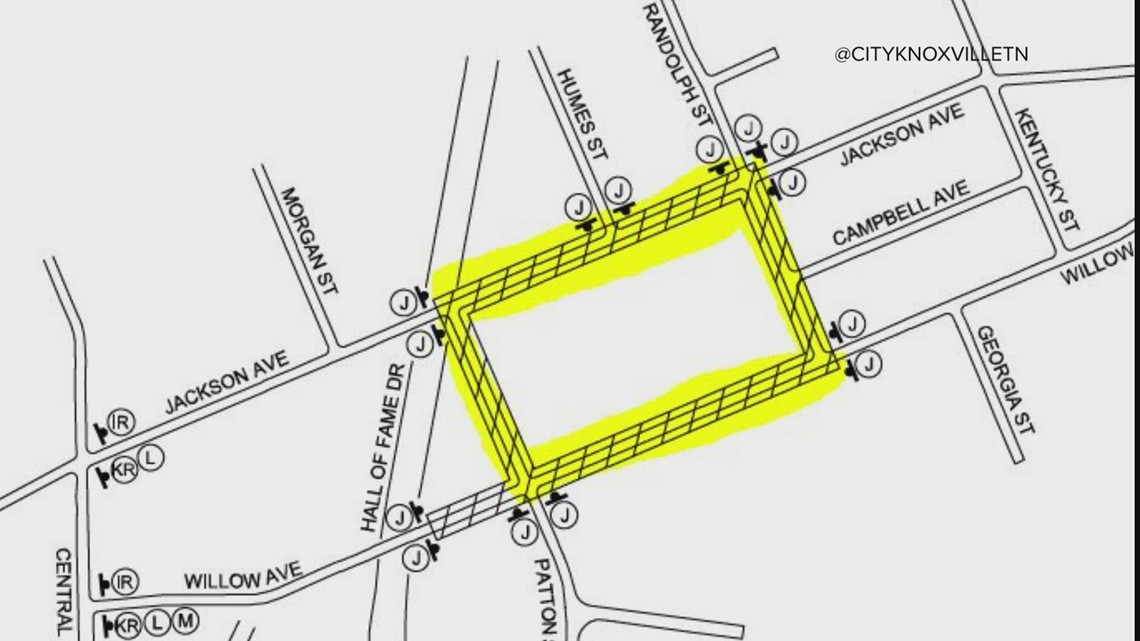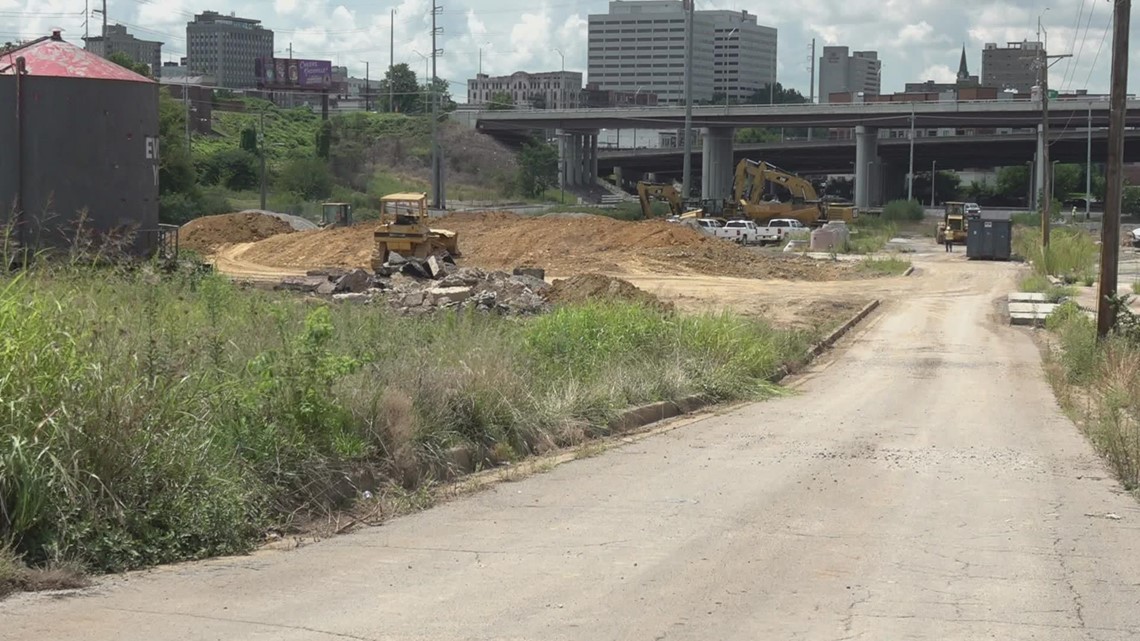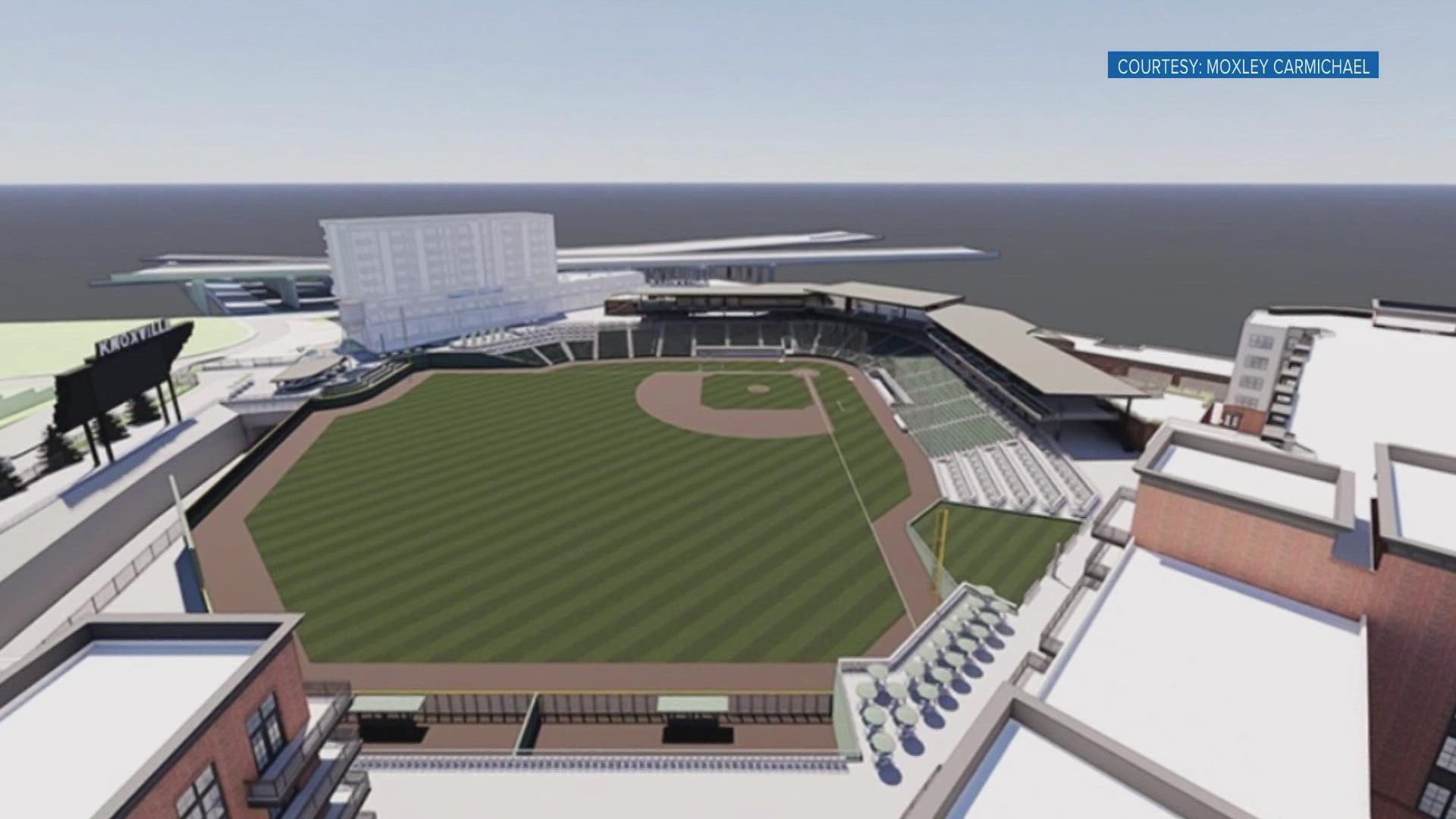KNOXVILLE, Tenn. — Pivoting to address rising costs, the Knoxville-Knox County Sports Authority on Tuesday morning blessed expanding a taxing district around the proposed downtown stadium in order to capture additional revenue to help cover stadium construction expenses.
Knoxville City Council was expected to do the same Tuesday night. Knox County Commission on Monday approved the move. All three bodies have to endorse the change for the project to move forward.
Doug Kirchhofer, CEO of the Tennessee Smokies baseball team that will use the stadium, told authority board members he's confident the project would be completed on time -- by late 2024 or early 2025.
A precise "maximum" construction cost amount is still being figured.
Kirchhofer told WBIR: “The design team is busily working on construction documents that will be used later this year to go out and get bids for the project with the anticipation of coming up with a guaranteed maximum price contract and getting started with the actual construction of the stadium.”
Developer, entrepreneur and team owner Randy Boyd wants to move his minor league club from Sevier County to downtown Knoxville. He's pushing for the construction of a multi-use stadium east of the Old City, and he's already bought land for it that would eventually be given to the public.
The baseball club and the local soccer club could use the facility, which also could host concerts and community events.
Construction is supposed to start by early 2023 with the team ready to play ball in 2025. The opening date already has been pushed back at least once.
Construction materials have risen sharply nationwide over the past year or so, straining the original vision for how the downtown stadium would be built. No firm budget has been released yet, but the stadium almost certainly will cost more than $80 million, millions higher than original estimates.
A short-term funding "gap" has become apparent this year between the projected costs of a year or two ago and the likely real cost, the city and county announced this summer. The design of the stadium, meanwhile, has been scaled back this year a bit to reduce expected costs.
After talks this summer, the city, county, and Boyd came up with a way to proceed. Boyd, a lifelong Knoxvillian, agreed to loan the project money on the front end, with the promise that he could recoup the loan later through money raised by expanding the geographic boundaries of what's called a tax increment financing district generally surrounding the site near Jackson Avenue.
It's assumed the largely industrial-commercial area will grow and prosper in the coming years, generating higher property tax revenue. As envisioned now, the bulk of the new money would first cover government improvement costs in the district with the rest being used to pay back Boyd for his loan, according to staff involved with the project.


County Commission on Monday approved the move, as required in order for the change to go forward. The Sports Authority followed suit Tuesday morning, and City Council will be asked Tuesday night to complete the process by agreeing to the TIF district expansion.
The old district included Hall of Fame Drive to the west, land in and around Jackson Avenue where the stadium will go and a small part of the neighborhood just north of Magnolia Avenue.
The new district lines stretch farther west to bring in Central Street, Interstate 40, a greater part of East Knoxville and a bit of Summit Hill Avenue to the south.
In addition to championing the ballpark, Boyd is leading an estimated $142 million private development project around it that includes several buildings with condos, apartments and commercial uses. That development is expected to create higher tax revenue and bring value to the surrounding area.
The Sports Authority will finance and oversee the construction of the stadium. It's going to issue bonds -- a form of debt -- to build it. The bonds would be paid back through several sources including annual team rent, projected sales tax revenue and $13.5 million provided by the state of Tennessee.


The goal throughout the planning process has been to find ways to cover the construction of the stadium without tapping into taxpayer revenue. The thinking is to leverage revenue generated by the project itself -- and surrounding development -- to cover costs.
Developer and authority board member Tim Hill said Tuesday he thought the staff and team planners had "done a wonderful job" with the revised financing strategy to limit the potential burden to taxpayers.
Also Tuesday, the Sports Authority agreed to raise the top interest rate cost for bonds to build the stadium to 6 percent from 5 percent. No bonds have been issued yet.
Kirchhofer said Boyd and the team look forward to proceeding with the project, despite economic uncertainty earlier this year.
"There’s certainly a lot of unknowns and a lot of uncertainty but I think less than there was earlier this year. I think there’s been a sense of maybe getting used to what the new normal is and starting to adapt to the conditions that we’re in," he told WBIR.



